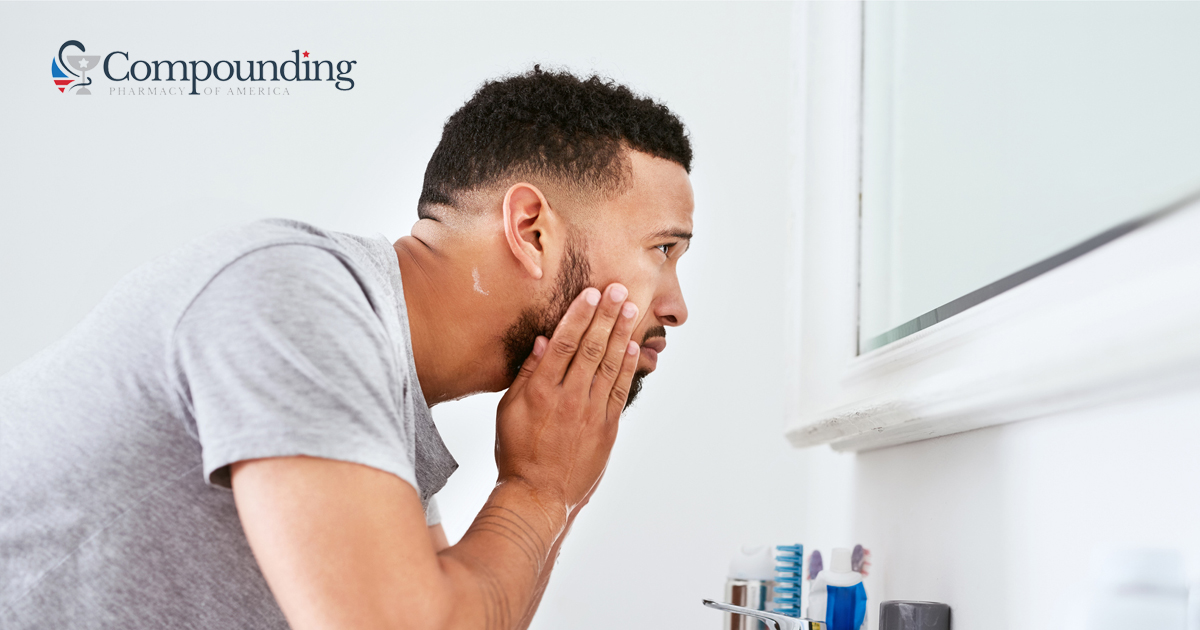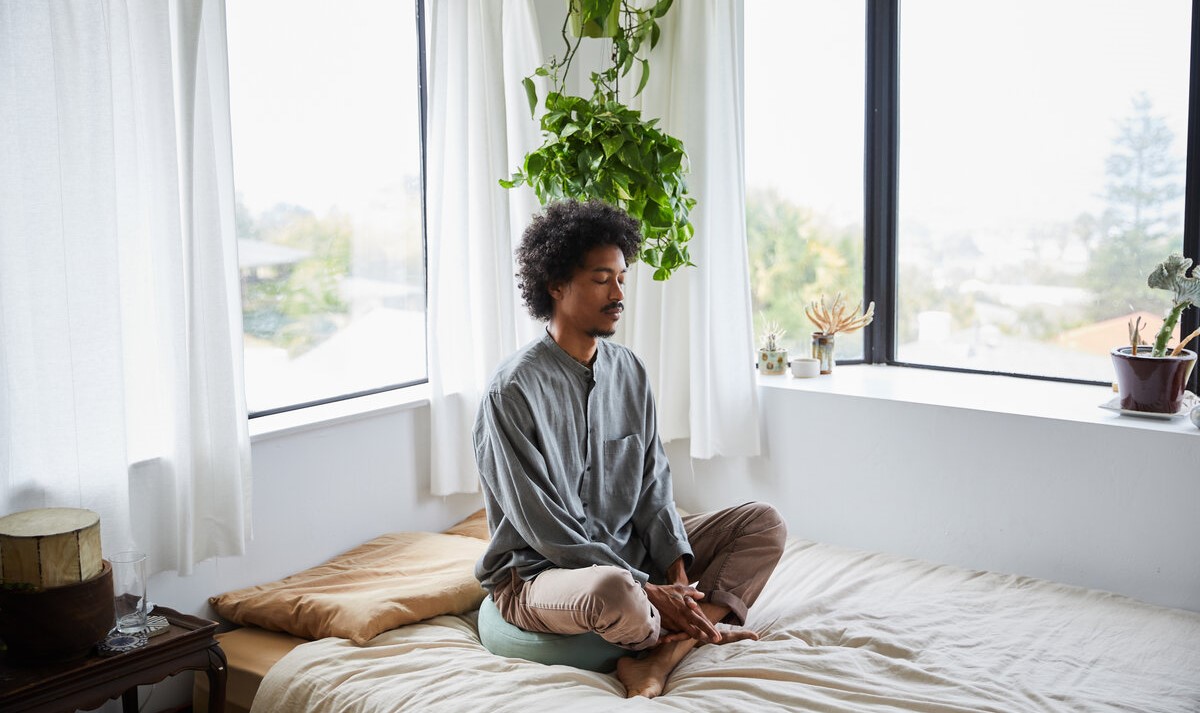
Our health depends on our ability to maintain our own personal wellbeing. Sadly, there is currently a deeply-held stigma regarding men and how they address personal wellness. This stigma isn’t a benign issue, either. In fact, as a result of this misconception that wellness and self-care are only for women, men can experience damage to various aspects of their health.
The ways in which men neglect their own wellness can vary, but researchers have noted these disturbing trends:
- Men between the ages of 16 and 44 are approximately half as likely to see a doctor, when compared to women in the same age bracket.
- Men tend to view therapy as a “crisis only” wellness option, rather than a way to work through their everyday concerns.
- Men tend to carry a much more negative view of therapy and counseling, as a whole.
- Men are 63 times more likely than women to take their own lives.
- Men are much less likely to talk to their health care provider about how they can prevent major chronic illnesses, including heart disease, diabetes, and more.
Of course, these are just a few examples. In fact, men are neglecting their wellness on a troubling scale—if anything, ignoring or rejecting personal wellness has become the norm. Perhaps unsurprisingly, men are suffering as a result.
Clearly, for the sake of men’s health and wellness, something needs to change. But how? Why does this issue exist in the first place, and how did this stigma form, despite being so detrimental to men’s health? Most importantly, what can men do to begin prioritizing their own health and wellness?
The Source of the Stigma
The stigma begins with the false idea that asking for support makes a man weak. Due to long-held beliefs of what constitutes masculinity and the continued pushing of the “caregiver” and “protector” roles, men are all but discouraged from taking care of themselves. As a result, the stigma surrounding men taking initiative over their own health has been developing for a long time. It’s practically ingrained into our culture.
To make matters worse, much of male society views addressing men’s health, men’s sexual wellness and men’s mental health as emasculating. A good example is erectile and sexual dysfunction, which are often viewed as a literal loss of manhood. As a result, men have developed a tendency to favor reactive care over proactive care—rather than take preventative measures to encourage long-term health, men are more likely to wait until a crisis to seek treatment.
So, how can you boot this stigma out of your life and begin focusing on the things you need to stay well? Devote your attention to the three primary factors of a man’s health: fitness, physical health, and mental health.
Fitness
When it comes to caring for yourself and your body, it’s vital to start by keeping fit. This doesn’t mean you have to devote your life to the gym—working out regularly doesn’t have to mean developing an interest in power-lifting or marathons. Personal fitness, like most things related to wellness, should suit the ability and needs of the person engaging in it.
To get started, it isn’t necessary to overhaul your behaviors entirely, or reinvent your routine from the ground up. Fitness isn’t an all or nothing activity—far from it. Simply make an effort to begin committing to thirty minutes of physical activity most days, and increase as your lifestyle permits. As a bonus, going to the gym can boost your happiness and help reduce stress, benefiting your mental health, as well.
Physical Health
Men are far less likely to see a doctor than women, which leads to serious issues. Both minor and major health complications can go unnoticed, sometimes until they’re too advanced to treat. Similarly, failing to pay attention to your nutritional needs can either cause or worsen many common health issues like diabetes, heart disease, and obesity.
Try to be more proactive about your health, rather than reactive. Don’t let stigma or insecurity prevent you from taking care of your body, and giving it the help it needs (or might need in the future). Schedule regular checkups and don’t delay addressing health concerns when they arise.
Similar to fitness, physical health and nutrition are far from an “all or nothing” situation. There’s no need to use restrictive diets in order to nourish your body properly. Rather, you can benefit from simply becoming more mindful of your eating habits and recognizing how those habits affect your short- and long-term health.
Mental Health
If you’re not looking after your mental wellness, then you’re neglecting to care for a huge piece of your overall health. In fact, your mental health should be just as valuable to you as your physical health and fitness. There’s nothing weak about seeing a mental health professional— if anything, it takes strength to look after yourself in the way your body and mind deserve.
However, it’s important to keep in mind that mental wellness doesn’t just apply when you’re experiencing a crisis. It’s best to nip mental health complications in the bud, before they catastrophize. Preventative health applies for mental health concerns, too.
Self-Care for Men
It’s time to change how men see self-care. There is nothing wrong or emasculating about caring for yourself, body and mind. To beat the stigma, it’s time to hold yourself accountable and put some real thought into how you approach self-care.
It’s important to note that the concept of self-care means something different for everyone. It’s a highly personal experience and depends on your individual needs. In general, however, men need to be aware that self-care doesn’t necessarily mean breaking out the scented candles and yoga mats (although it can!). At the end of the day, self-care is whatever you need it to be, so long as you’re proactive with your physical and mental health.
We’ve compiled some men’s wellness tips to help you begin practicing self-care in your own life.
1. Learn to Recognize Burnout
“Burnout” can look different from person to person, and can be triggered by different types (and intensities) of events. There’s no shame in admitting to feeling burnt out. Similarly, there’s no shame in taking a breather and caring for yourself when you begin feeling this way. In fact, once you begin practicing regular self-care, you might even be able to minimize the frequency and extent of burnout.
Make note of when you stop feeling like yourself, or whenever you feel too stressed or overwhelmed to function with your regular enthusiasm. In some men, burnout may take the form of irrational anger or irritability. For others, it might simply feel harder to socialize. Learn to recognize what burnout looks like in yourself and practice combatting it with some of the self-care activities below. Even just taking a half-hour or so to yourself can help.
2. Take Some Time to Yourself
 In essence, taking time is the crux of self-care. If you don’t make time for each of the elements of self-care, they’re not likely to happen on their own. When you’re faced with burnout, health, or emotional issues—or even before issues become apparent—know that it is not selfish to make time for yourself.
In essence, taking time is the crux of self-care. If you don’t make time for each of the elements of self-care, they’re not likely to happen on their own. When you’re faced with burnout, health, or emotional issues—or even before issues become apparent—know that it is not selfish to make time for yourself.
You don’t have to stress yourself out by trying to work a two-hour meditation class into your busy schedule. Even just listening to your favorite music on the way to work could qualify, as long as it’s something that promotes your own enjoyment and relaxation. The general idea is to avoid becoming the ultimate caregiver who never takes any time to care for themselves. No matter how rare, everyone needs some time to focus on themselves and decompress.
3. Spend Time with Friends or Loved Ones
Surrounding yourself with the people who love and respect you is another one of the foundations of self-care. Make sure to nourish these meaningful relationships and allow them to nourish you, in return. In fact, surrounding yourself with positive social relationships of any kind can have a positive impact on overall mental health.
When you’re interacting with people you care about, you’re able to distance yourself from the stresses of your daily routine. You might even have the opportunity to vent or share positive news. All of this can function as self-care and can have a favorable impact on your mental wellness.
4. Be Sure to Optimize Your Physical and Mental Health
In order to prioritize personal wellness, you’re going to need to put some thought and care into your own health. On a basic level, this begins with keeping up with yearly checkups with the doctor, both primary physicians and specialists. Keep tabs on your physical wellness and don’t neglect anything that seems like it could be off.
As we’ve already mentioned, it’s equally important that you take care of your mental health and well-being— don’t let stigma or discomfort allow you to neglect your own wellness. Make an effort to build awareness of how you’re feeling and remedy anything that needs fixing. That could mean seeing a professional, but it may be possible to start much smaller. Sometimes, maintaining your mental health can mean making small changes in your routine or devoting more effort to practicing self-care activities.
5. Find What You’re Passionate About, and Devote Time to That
Find activities or hobbies that bring you joy and make sure to allot adequate time to incorporate them into your routine. Whether you prefer reading, watching sports, creating art, or anything else that sparks your interest, make sure to work your passion into your schedule. Never convince yourself that your hobby or passion is not worth your time.
For a double-dose of self-care, look for a hobby that involves physical activity. Consider spending time in the gym, running, or playing an individual or team sport to lower stress and improve your personal fitness. If an activity brings you a sense of relief and boosts your physical health, then it’s worth putting time into, especially as a form of self-care.
The Bottom Line: Don’t Neglect Your Body and Mind
When all is said and done, it’s crucial that men take control of their wellness. Whether your priority is looking after your healthcare, boosting your personal fitness, giving care to your mind, or all three, it’s never weak to look after yourself. Hold yourself accountable for your own well-being, however that looks for you.
If you learn your body or mind functions best with the assistance of supplements and medications, whether for your sexual, mental, or physical health, compounding medication can help you ensure you keep your well-being in balance. Your physician can work directly with Compounding Pharmacy of America to determine the medications that work for you.
Visit our Men’s health Care and Wellness Guide and be sure to subscribe to our list to receive notifications about new products and supplements for men in our store as well as discounts and new content created just for you.
Want Men's Health Advice and Exclusive Offers?
Subscribe for updated information on men’s health, wellness and fitness... and discounts on vitamins and supplements that support your body’s natural systems.
Chief Operating Officer, The Compounding Pharmacy of America
Matthew Poteet, Pharm.D. graduated with Honors from Lee University with a Bachelors of Science in Biological Science. After his undergraduate training, he completed the Doctor of Pharmacy program at Mercer University Southern School of Pharmacy, graduating in 2004. Dr. Poteet has spent much of his pharmacy career on staff at two of the most prestigious academic teaching hospitals in the Southeast; Emory University in Atlanta and Vanderbilt University Medical Center in Nashville. At these institutions he received extensive experience and training in sterile products compounding.
He returned home to East Tennessee in 2010, where he has held the position of Pharmacy Director at two sterile products pharmacies in Knoxville. Matthew lives in Knoxville with his wife, Chris. Dr. Poteet is Tennessee’s first Board Certified Anti-Aging Pharmacist by the American Academy of Anti-Aging Medicine.




 Subscribe to Our Newsletter
Subscribe to Our Newsletter


